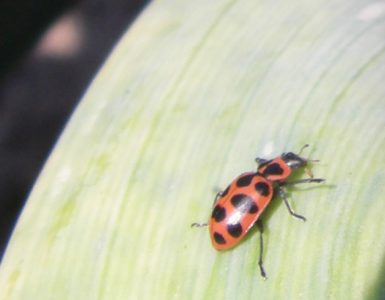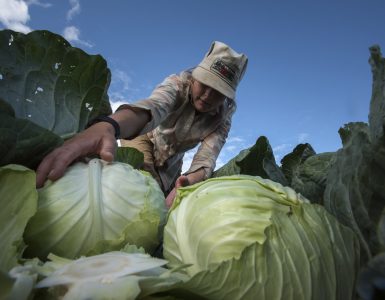I’ll be honest with you; as a kid, I would spit out any onion I tasted. At first I hated the flavour, but I came to hate the idea of onions. Inform my six-year-old self that there was onion in a meal, and you’d ensure in one sentence I would not take another bite.
I’m telling you this so that you know I was not easily won over to the side of the onion.
Only when I became a teenage vegan (much to the surprise of my parents, since I had little interest in vegetables in general) did I come to appreciate the onion. Teenagers are notorious for being hungry, and without animal products my palate necessarily broadened. As an adult became I a farmer and, with my new perspective on the food system, omnivorous.
So my childhood self would be shocked that not only do I appreciate onions, I actually spend much of my time growing them along with other vegetables. In fact, butter-fried onions are a favourite side-dish in our household.
My farming ancestors a thousand years ago, on the other hand, never had any doubt about the importance of the onion. Onions have been prized since they were first domesticated in Eurasia 7,000 years ago.
In medieval times, onions were considered valuable enough that you could reputedly pay your rent with them. Or you might give them as a wedding gift (since onions were thought to increase fertility and libido). Peasants would have appreciated the onion’s culinary attributes, to be sure. Its health benefits were widely known, useful in treating any number of ailments.
But they would be won over by the onion’s excellent agricultural qualities. The sharp, sulfur-rich compounds I hated when I was small make onions relatively resistant to disease in the field, and help them last longer in storage.
For these reasons, the onion was a staple crop in Europe until it was displaced (in Ireland, most famously) by the potato. But why? When potatoes and other crops like tomatoes and peppers were brought to Europe from the Americas, farmers viewed them with suspicion. Potatoes are members of the nightshade family, which was better known in Europe for poisonous species like belladonna (deadly nightshade). What made the Irish give up their favoured staple for a strange foreign crop?
The answer is simple: poverty. The potato was brought back to Europe while the nautical powers like Spain and Britain were bloodily expanding their empires around the world. In reward for military service abroad, British soldiers were given farms, which had been forcibly confiscated from the Irish peasantry. Irish people were pushed to the margins and forced to pay absentee landlords.
The potato’s appeal grew. The storage onion, for all its benefits, is not as fast to reproduce. It’s a biennial, taking two seasons to make seed. The onion you buy at the store has been grown for only one season—if you want to get seed from it, you have to plant that onion again and let it flower. If you are poor and hungry, perhaps you can’t afford to wait that long.
The potato is ready to regrow itself every spring, no waiting. And all you really need is the eye of the potato—you can eat most of a potato and still plant it. But the potato didn’t have the same disease resistance or genetic diversity as the sharp-flavoured onion; hence the eventual Irish Potato Famine.
Though not longer an agricultural staple in Europe, the onion remains a culinary essential around the world. And rightly so. Just frying up an onion is enough to fill a house with savoury smells and give the impression that dinner is well on its way.
Alas, it is a rare landlord these days who will accept a bushel of onions on the first of the month. But next time you go to a wedding do consider, if just for a moment, bringing the lucky couple an onion.
Aric McBay is a farmer and author. He lives and works at a mixed family farm with a dairy herd and a vegetable operation.







